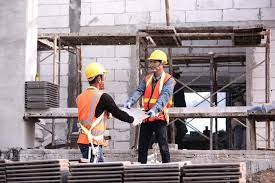The construction industry has seen significant construction company advancements over the past few decades. With the integration of technology and innovative materials, modern construction techniques have not only enhanced the efficiency and safety of building processes but also contributed to sustainable development. This article explores the evolution and impact of these contemporary construction methods.
Historical Perspective
Historically, construction relied heavily on manual labor and basic tools. Structures like the pyramids of Egypt and the Great Wall of China were marvels of their time, achieved with rudimentary methods. The industrial revolution marked a turning point, introducing machinery that significantly increased productivity and allowed for the construction of more complex structures.
Modern Construction Techniques
Prefabrication and Modular Construction
Prefabrication involves assembling components of a structure in a factory setting before transporting them to the construction site. This method reduces construction time, minimizes waste, and ensures higher quality control. Modular construction takes this a step further by creating entire modules that can be assembled on-site, leading to faster project completion and reduced labor costs.
Building Information Modeling (BIM)
Building Information Modeling (BIM) is a digital representation of the physical and functional characteristics of a facility. BIM software enables architects, engineers, and construction professionals to collaborate more efficiently, reducing errors and ensuring that projects are completed on time and within budget. The use of BIM has revolutionized the planning and execution phases of construction, providing a more integrated approach.
Sustainable and Green Construction
The push towards sustainability has led to the development of green construction techniques. These include the use of eco-friendly materials, energy-efficient building designs, and renewable energy sources. Techniques like green roofing, solar panel integration, and rainwater harvesting systems are becoming standard in modern construction, significantly reducing the environmental footprint of buildings.
Impact on the Industry
Increased Efficiency and Productivity
Modern construction techniques have drastically improved efficiency and productivity. The use of machinery and technology has reduced the need for manual labor, allowing for quicker project completion. This increase in productivity has also led to cost savings, making construction projects more affordable and accessible.
Enhanced Safety
Safety has always been a critical concern in the construction industry. Innovations such as drones for site inspection, wearable technology for monitoring worker health, and advanced machinery have significantly reduced the risk of accidents. These technologies provide real-time data and feedback, enabling proactive safety measures.
Economic Growth
The advancements in construction technology have spurred economic growth by creating new jobs and business opportunities. The demand for skilled workers in areas such as BIM modeling, prefabrication, and sustainable construction has increased, leading to a more diversified and robust workforce.
Challenges and Future Directions
Despite the numerous benefits, modern construction techniques also present challenges. The initial cost of adopting new technologies can be high, and there is a learning curve associated with their implementation. Additionally, the construction industry must continuously adapt to changing regulations and standards.
Looking ahead, the future of construction lies in further integration of technology, such as artificial intelligence and robotics. These advancements promise to make construction even more efficient, safe, and sustainable. The continued focus on sustainability will also drive innovation in the use of materials and energy-efficient building practices.
Conclusion
The evolution of construction techniques has transformed the industry, making it more efficient, safe, and environmentally friendly. As technology continues to advance, the construction industry will undoubtedly experience even greater changes, driving progress and sustainability. Embracing these modern techniques is essential for the continued growth and development of the construction sector.

